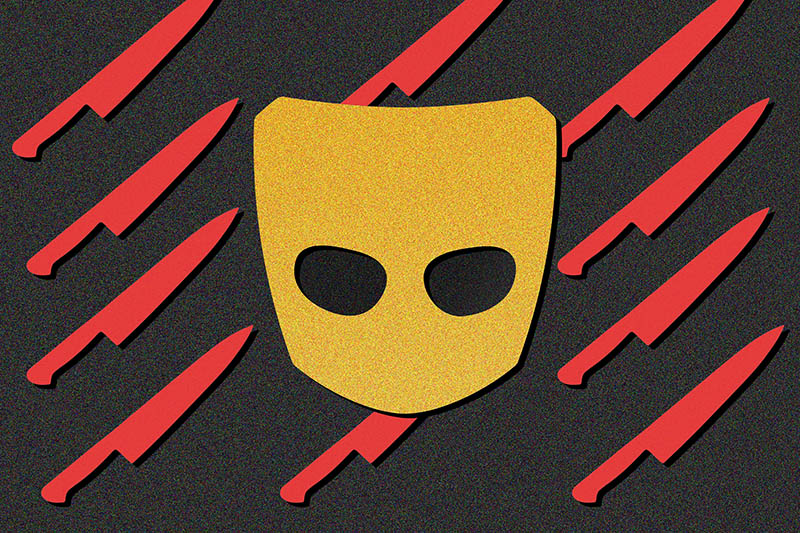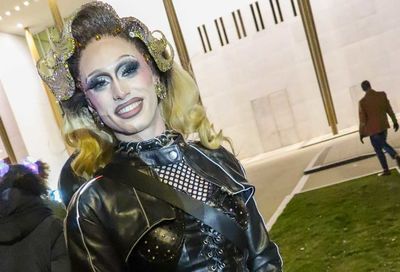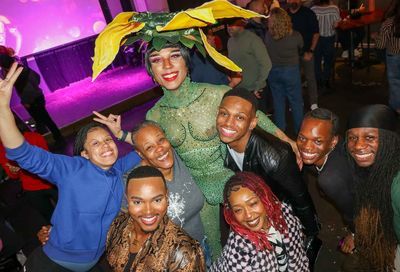Jewish community reacts to Jerusalem Pride stabbings
Rabbi Gil Steinlauf and Arthur Slepian on the divide between secular and Orthodox Israel

It was a tragedy that united all segments of the Jewish community, both in Israel and the United States. When a crazed ideologue attacked attendees of Jerusalem Pride, disparate communities from across the ideological spectrum condemned it.
On July 30th, Yishai Schlissel, an Orthodox Jewish man, stabbed six people at Pride, leading to the death of 16-year-old Shira Banki. A number of Jewish leaders expressed outrage at the attack, from influential rabbis to Israeli Prime Minister Benjamin Netanyahu, who promised to “pursue justice for those responsible.” The Times of Israel even reported that a delegation of haredi Orthodox Jews visited an LGBT center in Tel Aviv to express solidarity with the LGBT community following the attack.
Such strong condemnation is significant, because Israel’s Jewish community is often divided along ideological lines.
“Israel is a very interesting society, because it’s deeply, deeply polarized between an often times radically secularized society on the one hand, and a radically religious society on the other,” says Rabbi Gil Steinlauf of Adas Israel Synagogue in Washington. “So there’s a Pride parade in Tel Aviv and there’s a pride parade in Jerusalem. The Pride parade in Tel Aviv was earlier, in June. It’s this huge, incredible thing. It’s something to see, an incredible celebration for the LGBT community. It’s really a celebration for the whole city. You know why? Because Tel Aviv is really the secular capital for Israel.
“On the other hand, in Jerusalem, there’s a growing number of ultra-Orthodox Jews, and they’re in a totally insular environment…. And there’s a cynicism between the two polarities of the society,” Steinlauf continues. “So Israel, on the one hand, is this extraordinary place for progressive values of all types. But there’s a powerful ultra-Orthodox bloc. Voices of moderation…are the dominant voices here in the United States, but we are a very small minority in Israel.”
Arthur Slepian, founder and executive director of A Wider Bridge — which seeks to build connections between LGBT Israelis and LGBT Americans — says that Israel has largely been ahead of the United States when it comes to passing legal protections for LGBT individuals. But the social mores and degree of acceptability among more conservative groups within the country have not necessarily kept pace with the laws, meaning there are still segments of the society where homophobia is prevalent.
“It has been great to see the country rally around in condemnation of this murder,” says Slepian. “But a lot of that condemnation is coming from people who, on a daily basis, still promote prejudice and bigotry towards LGBT people.”
To that end, The Jerusalem Post reported that police have launched an investigation into dozens of posters, distributed by a group called “The Faithful Jewry” in several ultra-Orthodox neighborhoods that have praised the attack and Banki’s murder. The posters feature quotes and references to the Old Testament that hold up Schlissel as a hero. Police say they are questioning suspects and plan to make arrests related to the proliferation of the posters.
Slepian notes that such a stance — celebrating the death of a fellow Jew — would be considered extreme and would not be embraced by many, even within ultra-Orthodox circles. And it certainly would be rejected by the majority of Israelis.
Similarly, Steinlauf says that outside of the ultra-Orthodox community, there’s a tremendous amount of tolerance and support for LGBT rights within Judaism, both in Israel and the United States. And that tolerance is fairly widespread because it’s based on the values of justice and compassion that are central to Judaism. Pointing to his own life, Steinlauf notes that when he came out as gay, even though he is the head of a Conservative synagogue, he was fully accepted by the members of his congregation.
“I think you’re seeing a much stronger embrace of LGBT community inside of the Jewish community,” adds Slepian. “It’s not uniform, and there’s still a ways to go, but there has been an enormous amount of progress.”
Support Metro Weekly’s Journalism
These are challenging times for news organizations. And yet it’s crucial we stay active and provide vital resources and information to both our local readers and the world. So won’t you please take a moment and consider supporting Metro Weekly with a membership? For as little as $5 a month, you can help ensure Metro Weekly magazine and MetroWeekly.com remain free, viable resources as we provide the best, most diverse, culturally-resonant LGBTQ coverage in both the D.C. region and around the world. Memberships come with exclusive perks and discounts, your own personal digital delivery of each week’s magazine (and an archive), access to our Member's Lounge when it launches this fall, and exclusive members-only items like Metro Weekly Membership Mugs and Tote Bags! Check out all our membership levels here and please join us today!

























You must be logged in to post a comment.